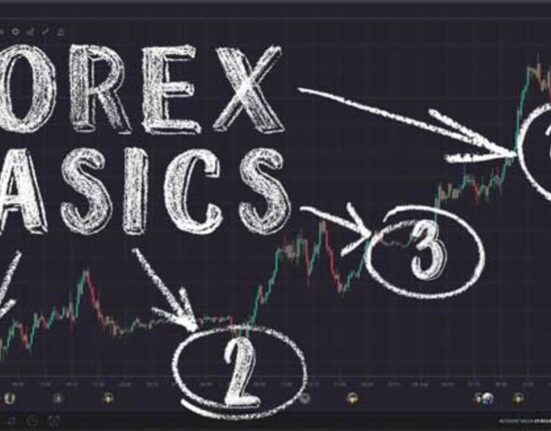Understanding Forex: A Beginner’s Guide

Forex, or foreign exchange, trading involves buying and selling currencies with the aim of making a profit from fluctuations in exchange rates. Unlike the stock market, the forex market operates 24 hours a day, five days a week, allowing traders from all around the globe to engage in trading activities. As the most liquid market in the world, forex trading offers vast opportunities but also comes with its own set of challenges.
Key Forex Terms Every Novice Should Know

Navigating the forex market requires familiarity with specific terminologies. Here are key terms you should know:
- Pip: The smallest price move in a currency pair. Most currency pairs are quoted to four decimal places, making a pip equal to 0.0001.
- Spread: The difference between the bid price and the ask price. A lower spread generally indicates a more liquid market.
- Leverage: A feature that allows traders to control larger positions with a smaller amount of actual capital. However, leverage can amplify both gains and losses.
- Margin: The deposit required to open or maintain a trading position.
- Lot: A standard unit of measure in forex trading. A standard lot is 100,000 units of the base currency.
Setting Up: Choosing Your Forex Broker

Selecting a reliable forex broker is crucial for your trading journey. Here’s a guide to help you choose wisely:
- Regulation: Ensure your broker is regulated by reputable financial authorities such as the Financial Conduct Authority (FCA), Securities and Exchange Commission (SEC), or the Australian Securities and Investments Commission (ASIC).
- Trading Platform: A user-friendly platform like MetaTrader 4 or 5 can significantly impact your trading experience.
- Fees and Commissions: Look for brokers with competitive spreads and low transaction fees.
- Customer Support: Good customer service can help resolve issues swiftly, ensuring smooth trading operations.
- Educational Resources: Opt for brokers that offer educational tools such as webinars, tutorials, and demo accounts.
Exploring the Basics of Forex Strategies

A robust trading strategy can make a difference between success and failure. Here are a few basic strategies:
- Trend Following: This involves identifying and following the current market trend. Tools like moving averages and the Relative Strength Index (RSI) can assist in spotting trends.
- Range Trading: Traders identify support and resistance levels and buy at support and sell at resistance.
- Scalping: This short-term strategy involves making numerous small trades to capitalize on minute price changes.
- Day Trading: Day traders open and close positions within the same trading day, avoiding overnight risk.
Managing Risks in Forex Trading

Risk management is paramount in forex trading. Here are practical tips to manage risks effectively:
- Use Stop-Loss Orders: Automatically close a losing position at a predetermined price to prevent further losses.
- Position Sizing: Never risk more than a small percentage of your trading capital on a single trade.
- Diversification: Don’t put all your eggs in one basket. Spread your investments across different currencies.
- Stay Informed: Keep abreast of global economic events and news that could impact currency movements.
- Emotional Control: Avoid making decisions based on emotions. Stick to your trading plan and strategies.
The Future of Forex: Trends to Watch

The forex market is continuously evolving. Here are some trends that beginners should keep an eye on:
- Technological Advancements: Artificial Intelligence (AI) and Machine Learning (ML) are revolutionizing trading strategies and market analysis.
- Regulation Changes: Ongoing regulatory changes can impact trading conditions and broker operations.
- Cryptocurrency Integration: Cryptocurrencies are becoming increasingly significant in forex trading, offering new trading opportunities.
- Increased Accessibility: With the advent of mobile trading platforms, forex trading is becoming more accessible to a wider audience.
Here’s a comparative table to summarize key forex brokers’ attributes:
| Broker | Regulation | Trading Platform | Fees & Commissions | Customer Support | Educational Resources |
|---|---|---|---|---|---|
| Broker A | FCA, SEC | MetaTrader 4/5 | Low spreads, no commission | 24/7 Live Chat | Webinars, Tutorials |
| Broker B | ASIC | Proprietary | Fixed spreads, low fees | Email Support | Demo Account, E-books |
| Broker C | CySEC | MetaTrader 4 | Variable spreads, moderate fees | Phone Support | Video Tutorials |
In conclusion, forex trading offers immense opportunities for profit, provided you equip yourself with the right knowledge, strategies, and risk management techniques. Whether you’re a novice or have some experience, constant learning and adaptation are key to succeeding in this dynamic market.










Leave feedback about this